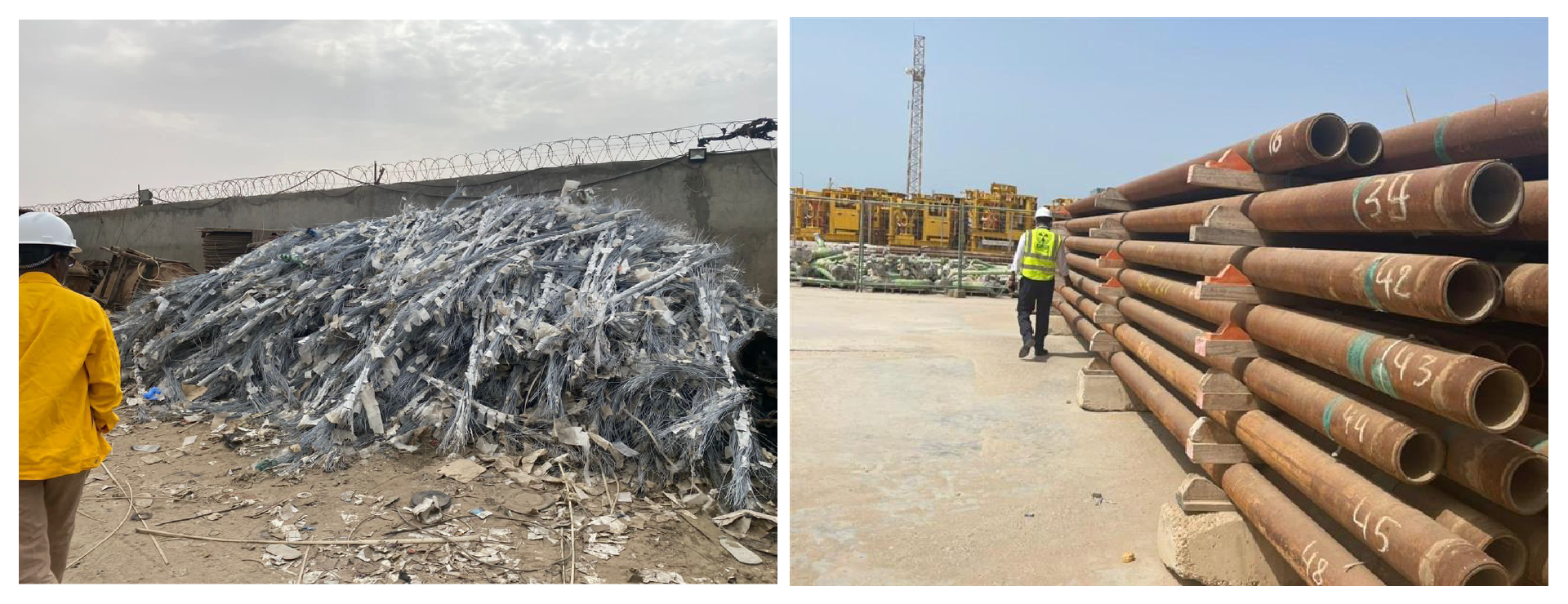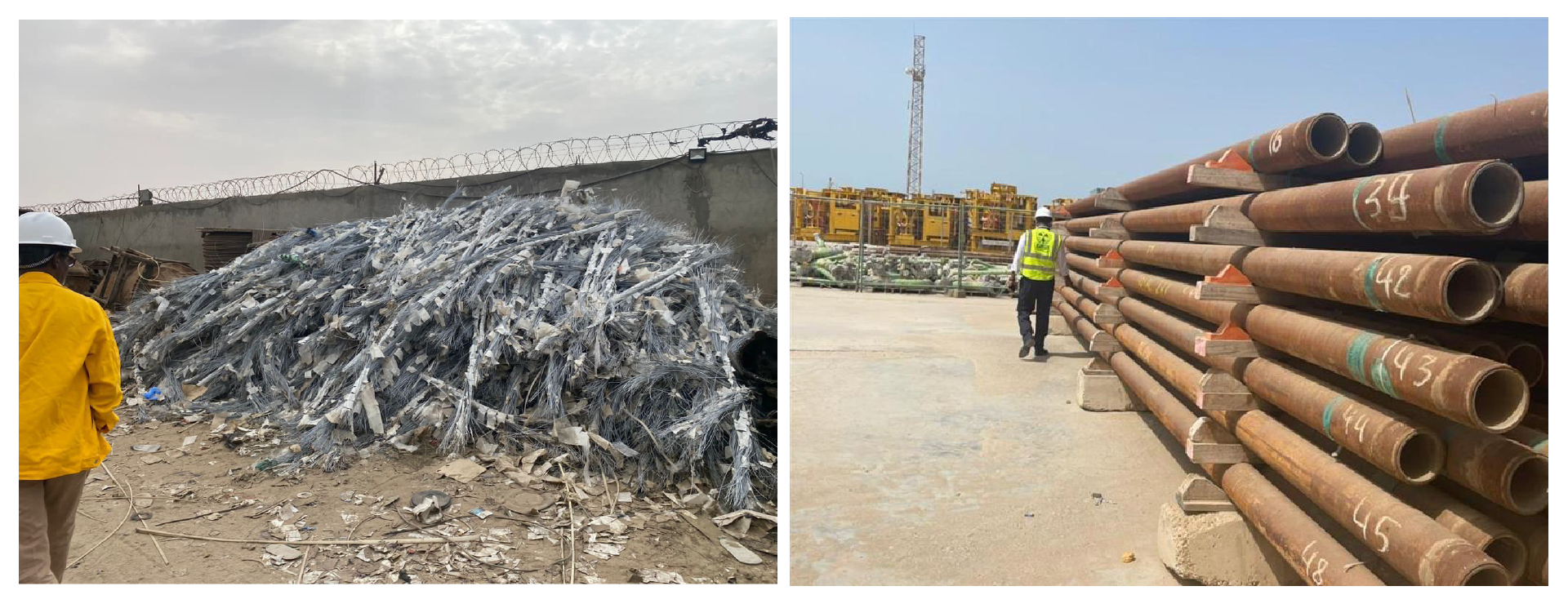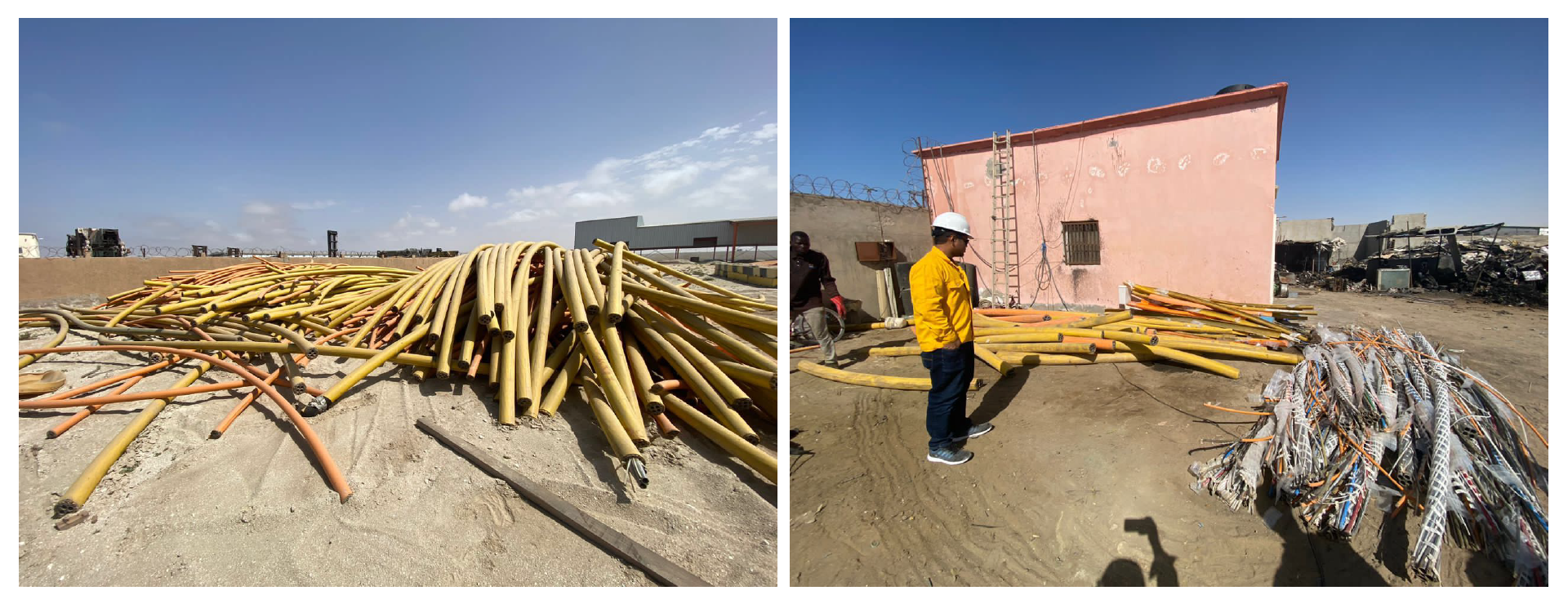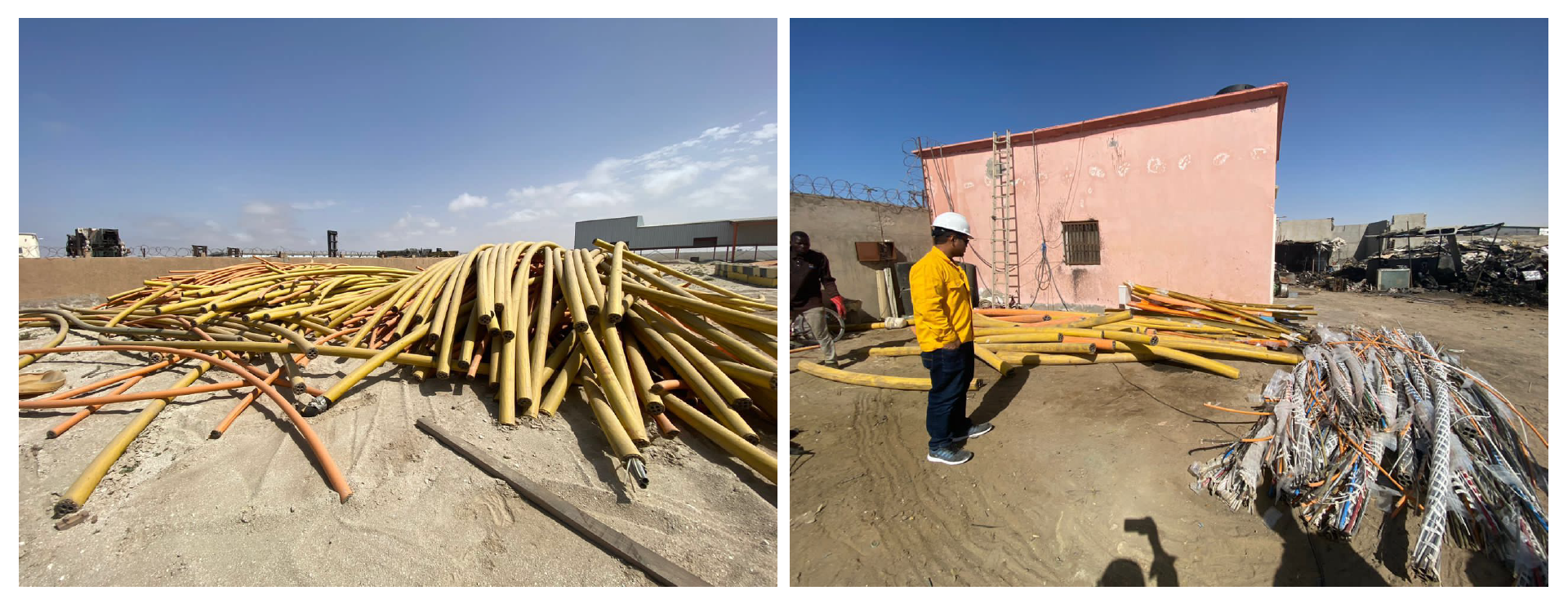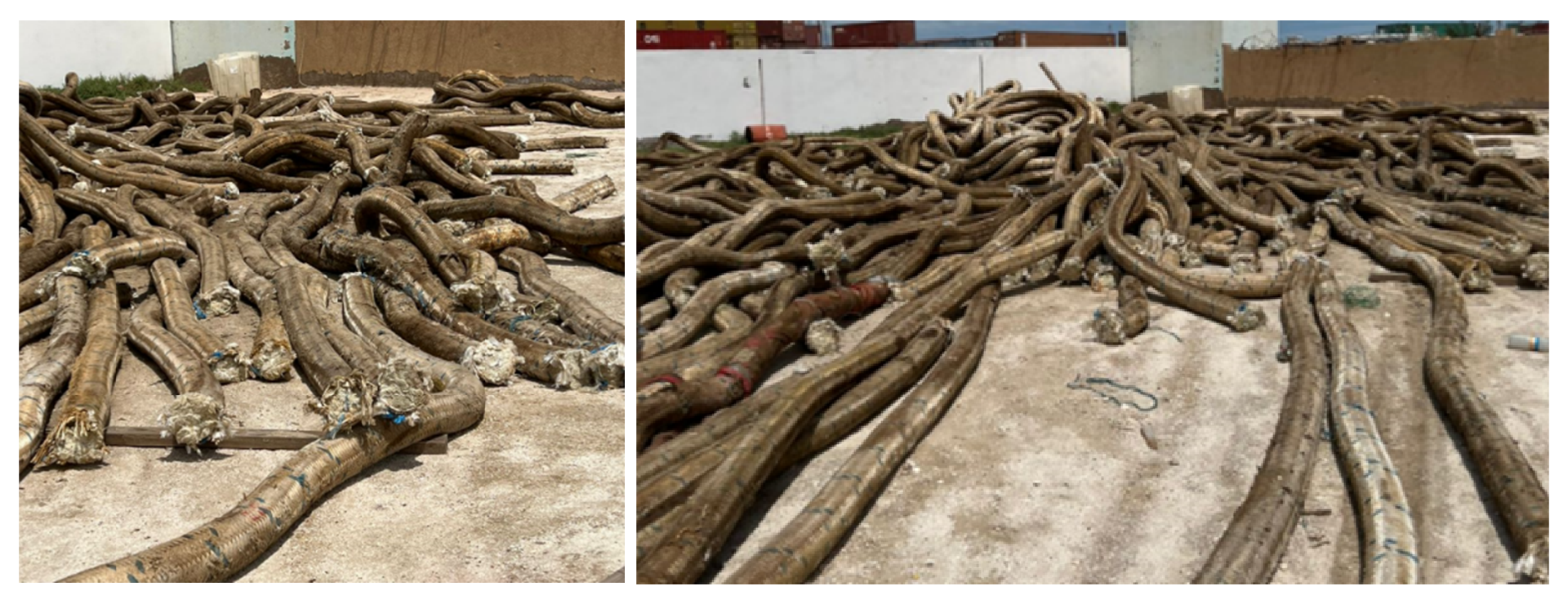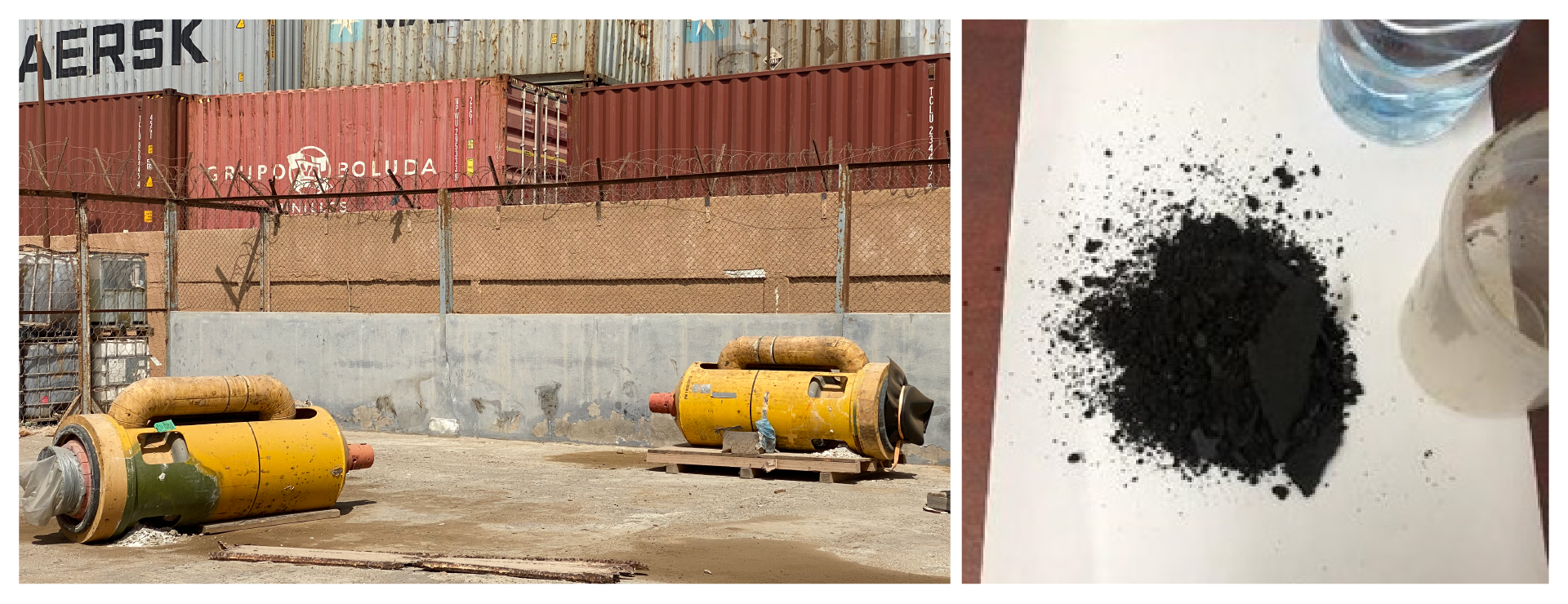What would you do if you had unused wires lying around the house? The answer would be to bring them to a proper recycling centre for disposal. But what if the wires themselves were the size and weight of multiple cars? Guess what, same answer!
PETRONAS’ expansion to Mauritania in 2007 through subsidiary PETRONAS Carigali Mauritania 1 Pty Ltd (PCMPL) resulted in many discoveries in the Chinguetti Field as its first-ever subsea deepwater operations. Subsequently, PCMPL continues to persevere as operations entered the Abandonment & Decommissioning (A&D) phase in 2017 by embarking on a waste ‘recycle and re-purpose’ initiative ensuring the waste recovered from the field is sustainably managed. Aligning with the PETRONAS Sustainability Agenda in ensuring proactive management of air emissions, waste, water and effluents and their impact, PCMPL aims to reduce environmental impact while upholding ethical business practices until the very end of its operations.
Throughout the Chinguetti A&D Project execution, various types of waste were recovered from the field and in need of proper waste management. This included hazardous and non-hazardous wastes, resulting from Hydrocarbon, contaminated risers, Naturally Occurring Radioactive Material (NORM) residuals, Christmas trees, manifolds, umbilical cables, tubulars, control lines, chemicals, and their associated structure. Specific methods are required to handle every type of waste, ensuring that we pose a minimal threat to the environment and its inhabitants.







